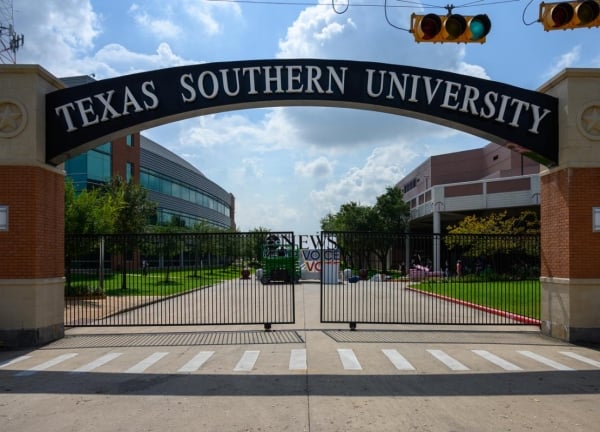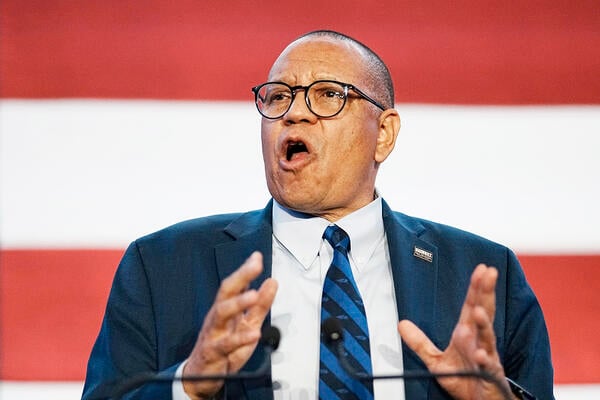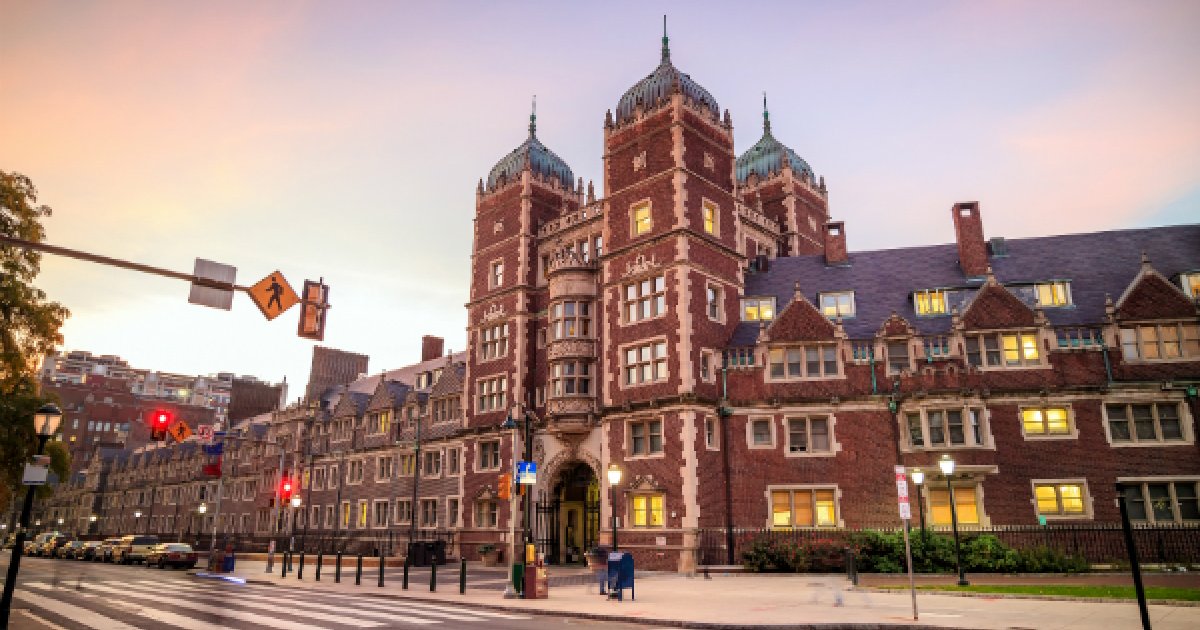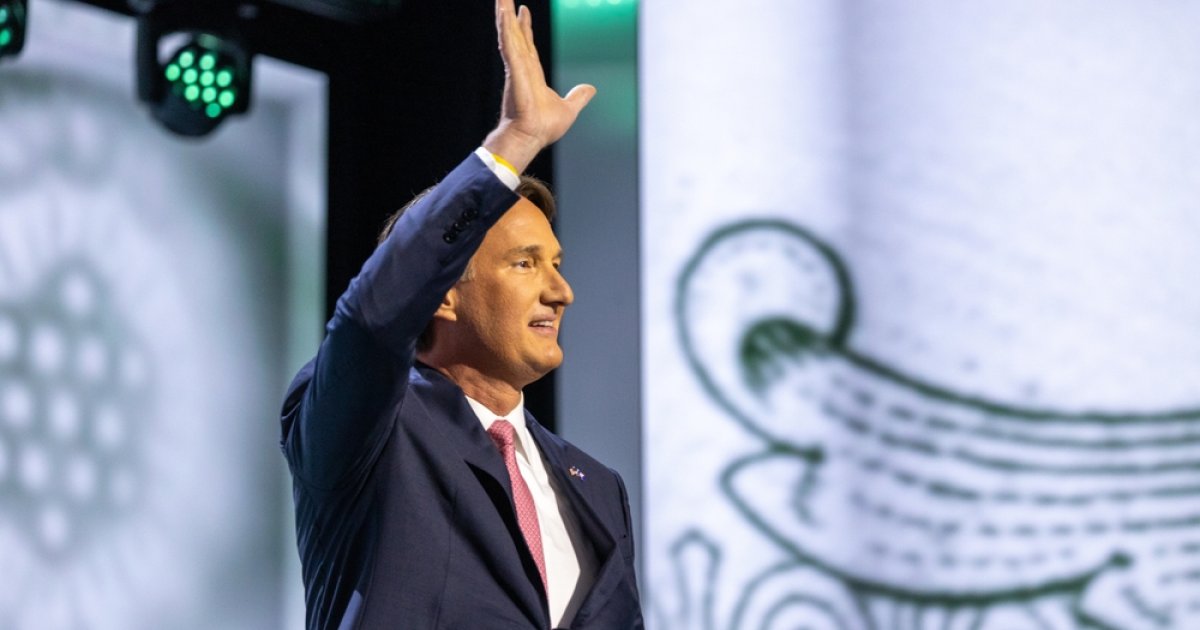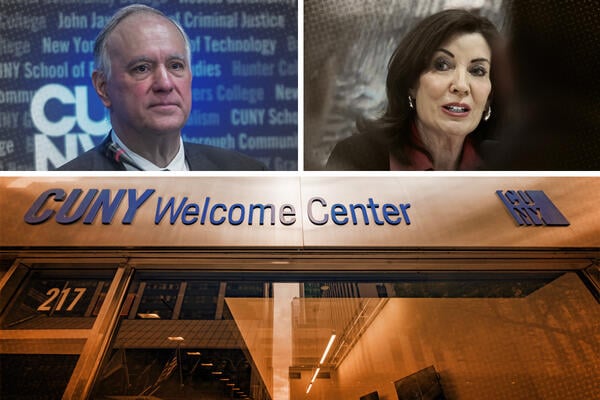Nearly two years ago, the Hamas-led October 7 attacks on Israel and Israel’s subsequent invasion of Gaza sparked intense debate and demonstrations on American campuses.
Many schools responded by attempting to censor controversial but protected speech in the name of combating antisemitism. But in testimony before Congress on Dec. 5, 2023, University of Pennsylvania’s then-President Liz Magill initially declined to follow suit. She explained that “calling for genocide” does not always violate Penn’s rules. Instead, she correctly labeled this a “context-dependent decision,” recognizing that rhetoric some find deeply offensive can still be protected speech. This assertion was in line with Penn’s longstanding — but often ignored — commitment to tracking the First Amendment in its own policies.
Unfortunately, Magill quickly backtracked in the face of public criticism, including from Pennsylvania Gov. Josh Shapiro. The governor said publicly that Magill needed to “give a one-word answer” and that her testimony demonstrated a “failure of leadership.”
As it turns out, the governor’s response was not limited to his public comments. Recent reporting by The Chronicle of Higher Education reveals how Gov. Shapiro’s office enmeshed itself in this controversy and in Penn’s response to antisemitism on campus in the months and semester that followed October 7.
Seizing on a rarely used provision of the Penn Statutes of the Trustees that establishes the governor as a trustee ex officio, Gov. Shapiro appointed Philadelphia lawyer Robb Fox as his observer to the board of trustees. Gov. Shapiro’s director of external affairs Amanda Warren explained in a then-private email that Fox would be “integrated into all future board meetings, as well as ongoing antisemitism work, on behalf of the Governor.” Fox was previously part of the governor’s transition team in 2022 and serves as his appointee on the board of SEPTA, Philadelphia’s transit authority.
Per the Chronicle, Fox “quickly immersed himself in Penn’s affairs — arguing technicalities of the board of trustee’s rules, liaising with students, faculty, and administrators, and contributing to Penn’s task force on antisemitism.” He began corresponding with Marc Rowan, who serves as chair of the Penn Wharton School’s board of advisors and was an early critic of both Magill and Bok. And in one early email regarding a proposed statement from the board, Fox said he would tell them “enough with the statements” and that they needed “a vote on board chair [Scott Bok] and president remaining.”
Days later, Magill and Bok resigned. A member of Penn’s School of Arts and Sciences’ board later thanked Fox for this early engagement, saying the trustees were able to oust Magill and Bok “with the governor’s nudge and with his support.”
All of this broke with precedent. Historically, Penn did not allow designees to attend board meetings in the governor’s place. The university only broke with this tradition after “many conversations between the Governor, President Magill, Board leadership, and staff.”
Fox’s influence reportedly expanded in the months that followed. Penn’s then-interim President Larry Jameson intervened to add Fox to the university’s antisemitism task force. One member of the task force told the Chronicle that Fox frequently said he was trying to represent the governor’s position. And when Fox got the impression that the task force was trying to treat him as a mere spectator, he reached out to Warren and declared that he would “not be an observer.”
Throughout all this, Fox and Warren frequently acted as a team. She connected him with Rowan in the early days of his appointment, and later connected him with the Penn Israel Public Affairs Committee. Fox and Warren were both part of an email exchange with Penn’s new board chair that sought information about the burgeoning encampment. And when Fox considered bypassing the task force on antisemitism and going directly to President Jameson to address an Instagram post by a pro-Palestine student organization, he first emailed Warren to discuss the issue with her.
Neither Penn nor Gov. Shapiro’s office deny any of this involvement. Indeed, both parties acknowledged their relationship in comments to the Chronicle, with Gov. Shapiro’s spokesperson explaining that they and Fox intervened in order to combat hate and antisemitism.
State pressure on private universities can be a dangerous backdoor to censorship
Combating unlawful antisemitic harassment is a noble goal, but when powerful public officials wield their influence to regulate speech at private universities, they’re playing a dangerous game. We saw this play out recently at Columbia University, where university leaders responded to the Trump administration’s unlawful funding freeze (purportedly a response to campus antisemitism) by capitulating to demands that will chill protected speech.
Columbia incorporated the International Holocaust Remembrance Association’s overbroad definition of antisemitism, which the Trump administration had earlier demanded, into its own definition. Later, in a settlement agreement it signed to restore government funding, Columbia required students to commit to vague goals like “equality and respect” that leave far too much room for abuse, much like the DEI statements, civility oaths, and other types of compelled speech FIRE has long opposed.
Gov. Shapiro’s intervention here is not nearly as heavy-handed, but it is still cause for concern. If the Chronicle’s reporting is accurate, then he and his office must act with greater restraint given the state’s influence over Penn, a private institution, and the potential for overreach.
The Chronicle notes that when President Jameson took office, Penn was working to reclaim $31 million in funding for its veterinary school and $1.8 million designated for the Penn Medicine Division of Infectious Diseases that had been withheld by the Pennsylvania legislature over antisemitism concerns. When faced with the loss of so much funding, many institutions, even those as wealthy as Penn, will be quick to fall in line with the state’s demands.
This backdoor approach to regulating speech, known as jawboning, is both incredibly powerful and uniquely dangerous. The First Amendment only protects against state censorship, not private regulation of speech, so when the state pressures private institutions into censoring disfavored speech, it blurs the legal line between unconstitutional state action and protected private conduct. The Supreme Court unanimously condemned this practice in NRA v. Vullo, reaffirming its 60-year-old ruling that governments cannot use third parties to censor speech they disfavor. The Court explained that this practice would allow a government official to “do indirectly what she is barred from doing directly.”
Jawboning’s chilling effects go beyond the pressured institution itself. For example, Gov. Shapiro’s close involvement at Penn incentivizes campus leaders to over-enforce their anti-discrimination and harassment policies in ways that prohibit or chill what would otherwise be lawful speech. Rather than risk state interference, many institutions will censor first and ask questions later.
None of this is to say that Penn has a sterling history when it comes to managing speech controversies on its own. In fact, Penn finished second to last in FIRE’s 2023 campus free speech rankings. But the situation is likely to get worse, not better, when the government amplifies the impulse to censor.
Transparency limitations at private universities amplify the risks of state involvement
Private universities are not subject to open-records laws like many public universities. At a public university, it is often possible to obtain records that reveal how or why the school changed a speech policy or engaged in censorship. By contrast, at a private university there is no formal way (besides the costly process of litigation) to request records that reveal the basis for such actions, including the extent to which they were the result of state pressure.
For example, after Penn’s tumultuous 2024 spring semester, the university adopted a vague and overbroad events and demonstrations policy. This policy prohibits “advocat[ing] violence” in all circumstances, even when it doesn’t cross the line into unprotected and unlawful conduct or speech, like incitement or true threats. Moreover, the policy fails to define “advocat[ing] violence.” This leaves students guessing and will lead to administrative abuse and uneven enforcement. Is the common but controversial slogan “from the river to the sea, Palestine will be free” a call for violence in Israel or a call for political change? Calling for U.S. bombing of terrorist groups like ISIS or Al-Qaeda is explicitly advocating violence. Is that prohibited? Under Penn’s new policy, that’s left to administrators to decide.
FIRE criticized this policy at the time and expressed concern that it was driven in part by viewpoint discrimination. But at a private university like Penn, there is no public records mechanism for the public to scrutinize how or why the policy was adopted. And although private universities are generally well within their rights to keep these decisions private, this arrangement becomes more troublesome when the state gets involved.
Private universities have their own free speech rights
Private universities themselves have free speech rights. A federal district court recently reiterated as much, explaining that the Trump administration violated the First Amendment when it conditioned funding to Harvard on the university “realigning its campus to better reflect a viewpoint favored by the government.”
Harvard, like Columbia and many other institutions, has been the target of a federal pressure campaign purportedly aimed at combatting antisemitism. But unlike Columbia, Harvard chose to defend its rights in court. This stand is praiseworthy, and the district court’s decision shows that private institutions stand on solid legal ground when they resist unlawful government pressure. Unfortunately, not every institution will be bold enough, or sufficiently well resourced, to fight the state in court.
State actors should protect students by enforcing the law, not by censoring protected speech
Given these dangers, Gov. Shapiro and other government actors seeking to combat discrimination must act through the proper legal channels. In the federal context, this means following the procedures laid out by Title VI and binding federal regulations. In its ruling for Harvard, the district court explained that this process is designed to ensure that recipients of federal funding “are shielded against being labeled with the ‘irreversible stigma’ of ‘discriminator’ until a certain level of agency process has determined that there was misconduct that warranted termination.” In other words, this process is a check on government overreach and all the harms that entails. The same principle applies to states trying to combat discrimination within their borders.
Enforcing valid anti-discrimination laws is important. But there’s a significant danger when state actors attempt to use the rationale of anti-discrimination to regulate speech at private universities. If left unchecked, this backdoor regulation risks turning private universities into de facto extensions of the state — undermining both academic freedom and the First Amendment itself.

